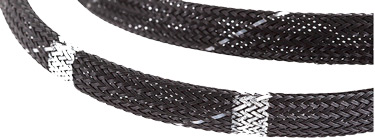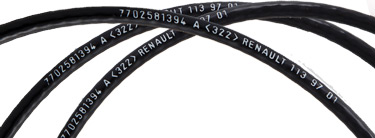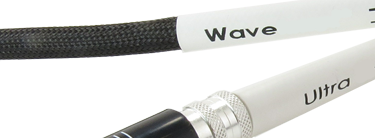Cables
Properties of cables
Cable codings are characterized by involving a potentially dark, non-porous background and a small writing surface. Coding also commonly needs to be done at high speeds. These conditions mean that a highly dense and quick-drying ink should be used. The most suitable options are wax or solvent based pigmented inks. The solvent evaporates immediately after coding directly causing the pigment to remain. When using wax-based ink, adhesion is achieved by immediate cooling and solidification of the wax on contact with the cable.
Suitable coding techniques for cables
Cable coding often involves text, barcodes, logos or marking after quality checks or detection points. For text and barcode coding, Hotstamp in combination with wax/resin inks is a suitable technique. Hot Solid Inks are again a good option for marking for internal purposes. UV-visible wax inks are also available so that the coding is only visible under black light, leaving the cable’s appearance unaltered.



